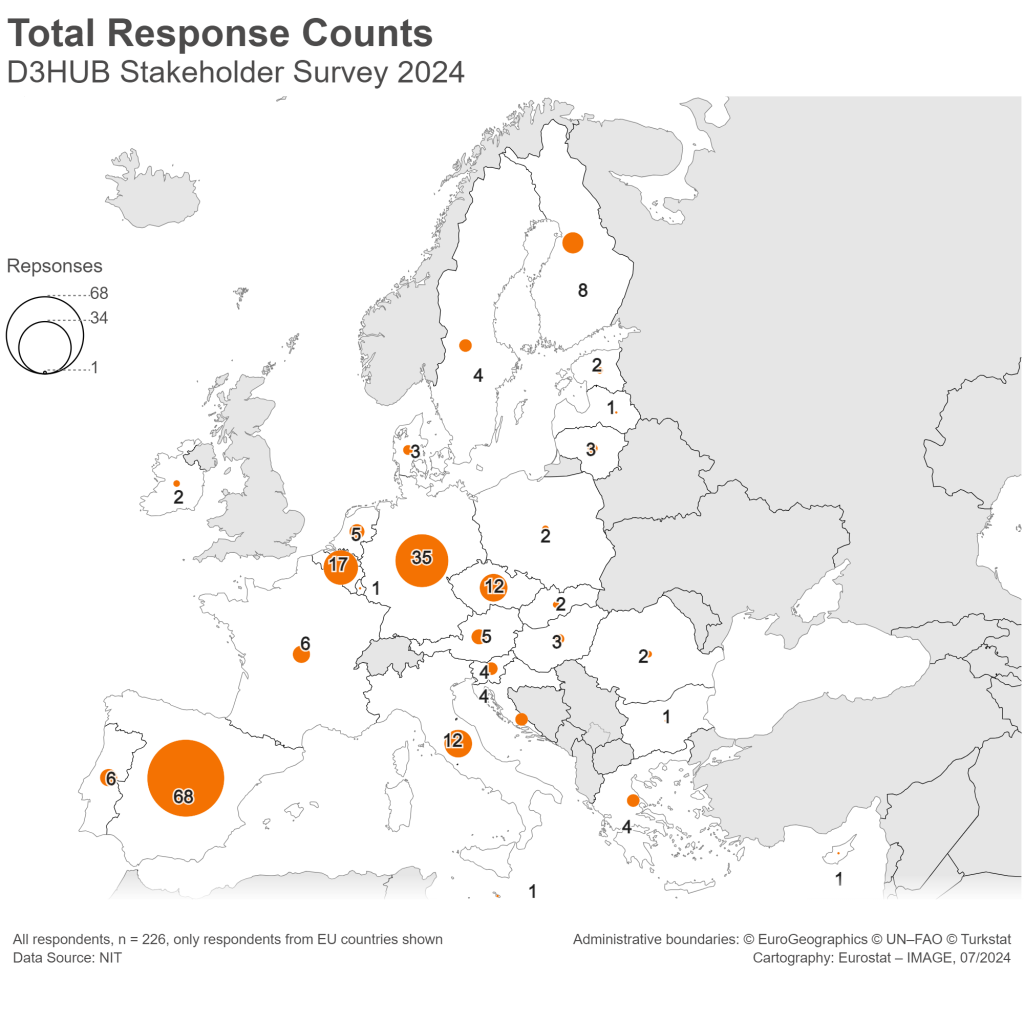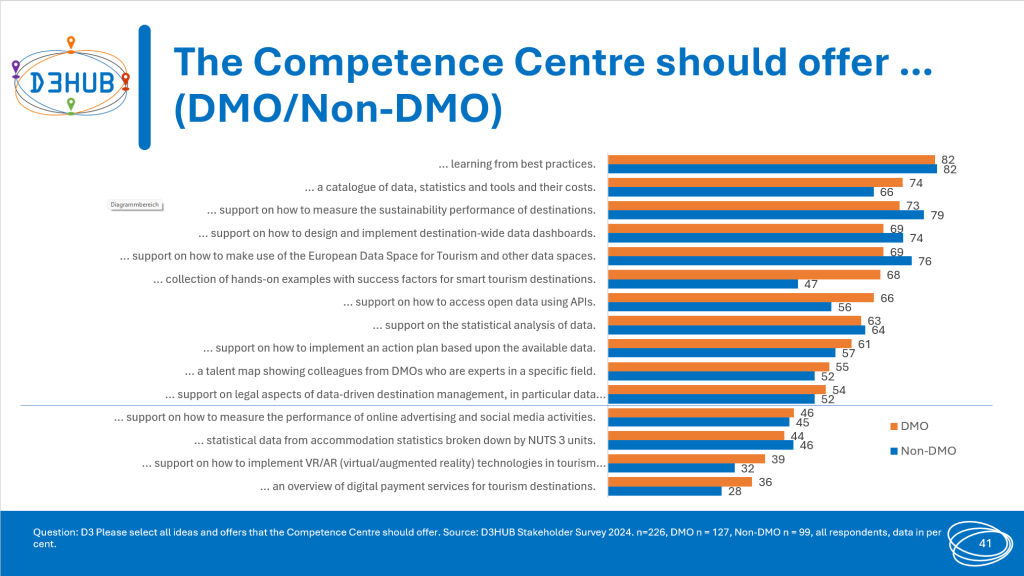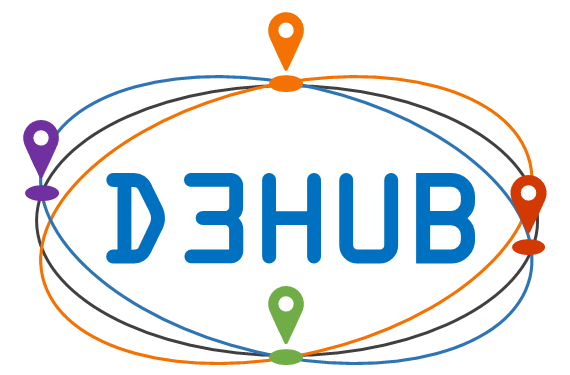By Dirk Schmücker, NIT
The D3HUB project team invited Destination Management Organisations (DMO) and other stakeholders from the tourism system to participate in interactive workshops and a Europe-wide survey. It was our objective to find out more about the data and information needs of European tourism stakeholders and their expectations towards ac European Competence Centre for data-driven destination management (D3HUB). More than 70 persons participated in the workshops and 226 took part in the survey, covering all 27 EU countries and all levels of DMOs. Data was collected in the period from April to June 2024.
Participants in the survey came from various organisational backgrounds. More than half represented DMOs on local, regional, state and national levels. The participating DMOs were confident on their data literacy: 43% saw themselves ahead of comparable organisations, only 13% thought that they lagged comparable organisations. Because most respondents came from the project partners network (including those who registered on the project website), we can assume that participants’ interest in smart, data-driven tourism destination management was above average.
Participants in the survey came from various organisational backgrounds. More than half represented DMOs on local, regional, state and national levels. The participating DMOs were confident on their data literacy: 43% saw themselves ahead of comparable organisations, only 13% thought that they lagged comparable organisations. Because most respondents came from the project partners network (including those who registered on the project website), we can assume that participants’ interest in smart, data-driven tourism destination management was above average.
Even in this group, only half of DMOs (47%) reported that they have a smart destination strategy or at least that smart destination elements are in the general destination strategy. And even though half of them (48%) make extensive use of destination related data, less than one in three (29%) was able to provide KPIs for the organisation. Data from official accommodation statistics is reported to be the
most used and perceived as the most helpful by the participating DMOs, followed by data from online marketing activities and reservation or booking data in accommodations. More than half of the DMOs (57%) do not use the Eurostat database on tourism statistics (or do not even know that it exists), other data sources are even more rarely used or completely unknown. Altogether, even in this group of
stakeholders with an above-average interest in the topic, actual competence is moderate or lower.

Consequently, more than 4 in 10 participating DMOs say that they would need “much support” in all five stages a of a model consisting of “data & statistics”, “tools”, “expertise”, “insights”, and “action”. When asked, which formats they would welcome most, learning from best practices, interactive dashboards, MOOCs, webinars and other online formats received the most interest.
The future competence centre for data-driven destination management was discussed in workshops and in the survey. Of course, we wanted to know from the participants if they find such a competence centre a good idea and, if so, which kind of support they would expect. The first question can be generally answered positively: Most experts we talked to in the workshops were in favour of such a competence centre, but there was also scepticism. Arguments were that such a competence centre should be careful to avoid overlaps with already existing initiatives and should focus on community building ans sharing of experiences, but not be reduced to provide just another data platform or dashboard. Also, the competence centre needs to find an answer for varying levels of maturity,
competence and expertise among the DMOs throughout Europe. Results from the workshops also showed that DMOs are ready to finance services that they find useful.
At the same time, participants had a clear view of their preferences which services a competence centre should offer. Ranked first is, again, “learning from best
practices”, followed by the wish for more transparency in the unclear and sometimes confusing world of data sources, metadata and what do with them.
Ranked third is the whish to get support in using data for a sustainable transformation of destinations. Workshops and survey were primarily intended to give a solid basis fur further conceptualising the competence centre. This will not be an easy task: Although the idea of such a competence centre is generally welcomed, it will need to find a balance between leadership in the field of data-driven destination management and not to interfere with already existing initiatives. Additionally, results suggest that potential users require, on the one hand, clear guidance to fill the gaps in their competence portfolio and,
on the other hand, the wish to exchange on par with other DMOs in Europe.
Ranked third is the whish to get support in using data for a sustainable transformation of destinations. Workshops and survey were primarily intended to give a solid basis fur further conceptualising the competence centre. This will not be an easy task: Although the idea of such a competence centre is generally welcomed, it will need to find a balance between leadership in the field of data-driven destination management and not to interfere with already existing initiatives. Additionally, results suggest that potential users require, on the one hand, clear guidance to fill the gaps in their competence portfolio and,
on the other hand, the wish to exchange on par with other DMOs in Europe.

